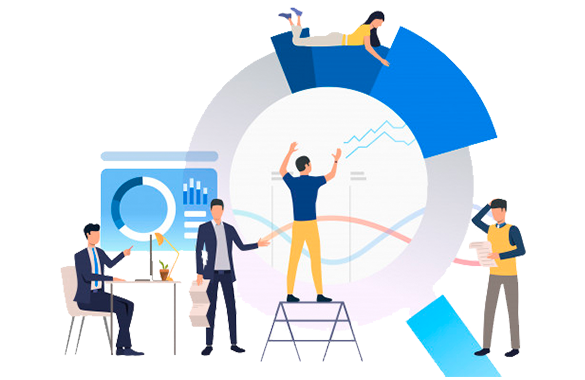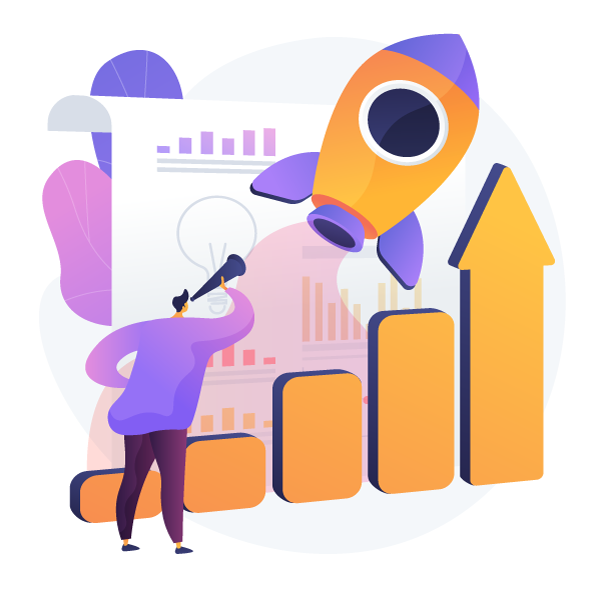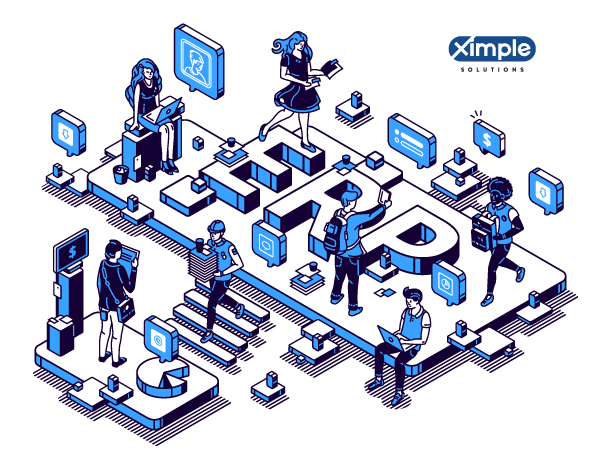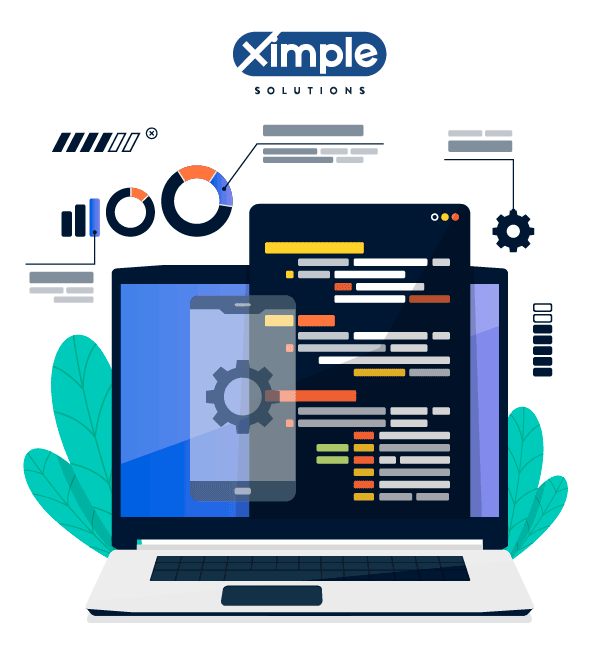COVID pandemic has accelerated Digitization, Digitalization, and Digital Transformation plans for many Wholesale Distributors. Wholesale Distributors have suddenly understood that Technology can improve efficiencies, and reduce inventory and profitability. Technology no longer looks esoteric.
The last ten years have seen many technologies and ideas mature from the Proof of Concept (POC) phase to become Industry Ready. Technologies like Artificial Intelligence, Remote Collaboration, Machine Learning, Robotics Process Automation, Industrial IoT, and Blockchain have demonstrated their value to the early adopters who made these technologies a part of their day-to-day activities. The information and intelligence provided by these technologies have added value to the adopters.


Wholesale Distributors have started looking at Technology as a revenue driver rather than a cost element. This shift in perspective means higher readiness to embrace Technology.
ERP system is the backbone of any technology initiative in the company. ERP Software will drive a shift in the technology adoption mindset of the companies. This article looks at Top ERP Software trends that will influence the ERP market in the coming years.
While on the demand side, wholesale distributors are evaluating ERP as part of their Digital Transformation initiative. ERP vendors provide new revenue models to lower the pain of the customers and improve the customer experience. They have introduced innovative and straightforward revenue models that give a sense of predictability to their customers. They are regularly adding new features to their applications to meet the diverse requirements of the customer.
Both these aspects, demand-pull and supply push, will drive the ERP market in the years to come.
ERP Market is expected to grow from 15% – 20% per year, according to the market research firm Valuates Reports. The major factors impacting the rise in demand are technology adoption, efficiency improvement, and cloud & mobility. Yet another driver is the demand for ERP from the Small Medium Enterprise (SME) Segment.
While North America will see the largest market share, Asia will see the highest increase in ERP demand, predominantly driven by SMEs in India, China, and Singapore.
The global Cloud Computing market will grow from 374 Billion USD to 832 Billion USD by 2025. ERP Vendors are expected to add new technology solutions to their Cloud portfolio to benefit from this investment.

Cloud ERP Vendors are offering several value propositions. They are moving away from the traditional pitch of Capex (Capital Expenditure) versus Opex (Operational Expenditure). They are now stressing advanced security, data redundancy, flexible payment plans, and advanced features in their ERP applications. It makes Cloud adoption an attractive option for companies considering ERP. On-premise model limitations like regular and disruptive upgrades, high amount of Capex, and shrinking consultants ecosystem as consultants shift to Cloud ERP make Cloud adoption an easier decision for customers.
Cloud computing enables ERP Vendors to quickly integrate advanced technologies like IIOT and Blockchain with their ERP. ERP Vendors are already providing standalone technology solutions to their customers, and we will see these getting integrated quickly.
A simple example of this integration is using real-time data provided by IIOT to trigger the Blockchain smart contract that automatically generates a new Sale Order in the ERP application. Another example will be using Machine Learning to autofill data in ERP, thus reducing data entry and improving user experience. Improving user experience will be the initial goal of these integrations, but soon they will start generating business value by enabling better analysis and decision-making.
Generic ERPs and Cloud adoption drove the teen years of the 21st Century. Now that the cloud has matured, ERPs that provide niche, industry-specific solutions will be the future. Of course, the core ERP will remain unchanged, but ERP Vendors will offer more niche and modular solutions that will deliver a plug-and-play integration with ERP. E.g.,
The ERP Vendors will offer bolt-on solutions to handle the complex project management requirements of electrical distributors, the unique supply chain requirements of a Wholesale Distribution industry, or the complex costing needs of the logistics industry. Some Wholesale distributors have individual needs for a service business, vehicle fleet management, scheduling contractors or service employees, and specialized return merchandising processes. While the second decade of the 21st Century focused on generalization, the coming decade will see specialization coming back with a vengeance.


This is a change in mindset for the wholesale distribution business. It will change the way Distributors use technology. The objective is to make IT a business value proposition and a revenue driver rather than a resource-consuming department. An ideal transformation will change every aspect of the wholesale distribution business, from sourcing to customer relationships, finance, sales, after-services, and everything in between.
The COVID pandemic of 2020 has energized digital transformation initiatives. While mobility and remote working were always the goals of the transformation, the pandemic removed the skepticism. The pandemic has convinced many Wholesale Distributor CEOs that Digital Transformation could work, and there is much more appreciation and budget for it.
ERP is the foundation of a successful Digital Transformation for Wholesale Distributors. Implementing ERP as a part of a five-year Transformation plan will be a crucial trend in the coming years to stay competitive.
ERP on the go and ERP Everywhere will be the new trend. Mobility will enable both date entry (input) and information access (output). While many ERPs are already enabling mobility, it is going to explode with Cloud Adoption. It is only a matter of time before the salespersons at a customer site will check the mobile for availability to promise and scan the QR code on the product to enter a new sales order.
Voice will be another related trend. Already, CEOs integrate their ERP with Alexa and get the latest production numbers at their table by asking a simple question to Alexa or Siri. As we advance, Voice could be used for data input, where a buyer can create a purchase requisition by dictating the order to Alexa. The potential is enormous.
RPA (Robotic process automation) is integrated with ERP to create chatbots that can help stakeholders quickly and accurately get their clarifications. Chatbots can also encourage internal collaboration. Besides, ERPs integrate collaboration tools like chats and videos (and even Wiki) into their ERPs.


With Cloud ERP Adoption, Integration using standard APIs will be the new trend. Customers will no longer be dependent on a single vendor for the entire solution. You could see customers using one ERP for their core processes and using different vendors’ solutions for their specific requirements. For example, they may use Ximple Cloud ERP as their core wholesale distribution business, a third-party payroll vendor for their Payroll, a sourcing solution, and an advanced planning system from other vendors. Customers will expect their ERP Vendors to provide seamless and non-invasive integrations of these niche solutions with their ERP Systems. It will be similar to many apps being installed on your mobile phones.
With current ERP Software Trends, the analytics features supported by ERP applications are becoming stronger by the day. Most applications have enabled embedded data warehouse tools like Cubes to have a 360-degree interaction with ERP. Unlike the past, where data flowed from ERP to the DW, the advanced ERPs allow DW to use the information to generate ERP transactions.
While information is available in abundance, the currently available analytics tools are weak in generating intelligence out of the data. Besides, those tools are good at analyzing structured data, and they are ineffective at handling unstructured data. That is where new technologies like AI and ML will play a significant part in the future. They will use both structured and unstructured data for predictive analytics and identify gaps as well as opportunities.


In 2024, COVID remains the primary concern. In 2020, companies scaled down on their IT Investment. They are expected to review the IT Budget this year as digitalization is the only way forward to drive sales and reduce costs. In a survey, more than 80% of companies reported the same or marginal improvement in sales is anticipated sales in 2023 compared to 2020. Wholesale Distributors will continue to make technology investments, including Cloud ERP, B2B/B2C e-commerce platforms. Investment is expected at a faster rate in the second half of 2023.
The top ERP Software Trends will get adopted faster by wholesale distributors as the pandemic situation improves and the world regains confidence.
 Faqs
Faqs
The current ERP software trend includes cloud deployment, the internet of things (IoT), mobile ERP, and artificial intelligence (AI).
The future of ERP software will be moved to Cloud-based solutions as the demand for ERP software increases, it becomes more critical to store data in Servers because there are security-related issues to store large amounts of data in servers.
The main reason to make ERP popular is that it can manage all your company information, from financial, employee, and other important data, with the advanced security system. ERP software automates your business process and reduces the manual effort in your company.